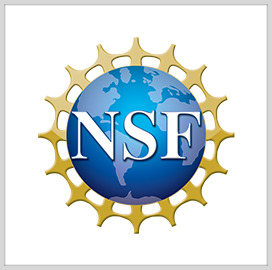The National Science Foundation has announced the selection of six research teams advancing to Phase 2 of its Convergence Accelerator’s Track I: Sustainable Materials for Global Challenges program aimed at developing solutions to speed up materials development for such industries as semiconductors and plastics.
A total of $30 million has been allocated to the program, which is a partnership with Australia’s national science agency, the Commonwealth Scientific and Industrial Research Organisation, a.k.a. CSIRO, the NSF said Tuesday.
Each Phase 2 team will receive an award of up to $5 million over three years.
The teams will undergo innovation and entrepreneurial training on such areas as product development, financial resources and sustainability planning.
Australian researchers from the University of Wollongong and Western Sydney University, with CSIRO funding, are among the members of the U.S.-led team ReCreateIt focused on landfill waste reduction research.
A team led by IBM’s PFACTS Almaden Research Center is geared to boost development of compostable materials for food containers and semiconductors.
Battelle Memorial Institute leads a research team on recyclable materials for solar panels, while a team headed by the University of Georgia Research Foundation will work on a tool to examine the flow of materials, such as plastics and organics, through local communities.
The Massachusetts Institute of Technology leads two Phase 2 teams, with one focused on establishing a microchip sustainability alliance and the other geared for research on topological materials for low-cost next-generation energy and information tools.
The NSF initiated the Convergence Accelerator program with a request for information in October 2020 for concepts to accelerate the transition of technology from basic research to discovery.





